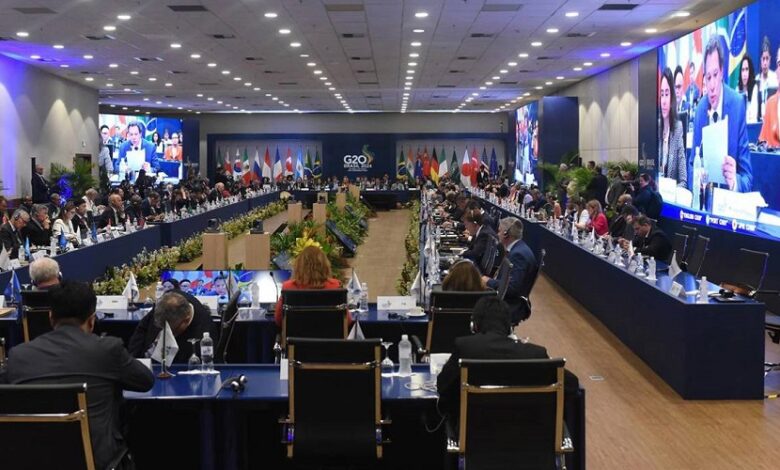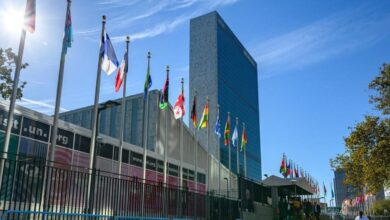
By José Antonio Ocampo
Special to The Times Kuwait
In recent decades, the availability of preferential tax regimes and tax havens has deprived governments worldwide of huge amounts of revenue. According to the EU Tax Observatory, multinational corporations shifted $1 trillion — the equivalent of 35 percent of all the profits booked outside their headquarter countries — to tax havens in 2022. Meanwhile, super-rich individuals faced very low effective tax rates, equivalent to just 0-0.5 percent of their total collective wealth.
The problem is that, rather than cooperating on taxation, countries have been competing to attract big corporations and wealthy people. Fortunately, steps are now being taken to change this.
The OECD and G20 agreed in 2021 on an Inclusive Framework on Base Erosion and Profit Shifting, aimed at limiting tax avoidance, ensuring the coherence of international tax rules, and establishing greater global tax transparency. But the agreement was far too limited in scope, requiring only very large multinationals to allocate a small share of their global profits to the countries where their customers are located. And the convention that would implement even this limited requirement has yet to be ratified, with the United States emerging as a key barrier to progress.
The Inclusive Framework also agreed to a low minimum tax rate of 15 percent for multinationals, well below these countries’ current average corporate tax rate of 25 percent, and lower than the minimum rate of 21 percent proposed by the US. Yet another flaw in the framework is that signatories would be required to avoid unilateral measures, such as taxes on digital services. Overall, benefits to developing economies were minimal.
Today, however, two initiatives are underway that, while incomplete, represent important improvements on the Inclusive Framework. First, last week in Rio de Janeiro, G20 finance ministers agreed to work together to ensure that ultra-high-net-worth individuals are taxed more effectively.
Brazil made such an agreement, which was also supported by France, South Africa, Spain, and others, a top priority of its G20 presidency. While the details have yet to be decided, one possible approach — recommended by Gabriel Zucman of the University of California, Berkeley, and of the Independent Commission for the Reform of Corporate Taxation — would be to impose a 2 percent global wealth tax on the world’s billionaires (in US dollar terms). That is roughly 3,000 people.
The second promising initiative is a United Nations framework convention on international tax cooperation, negotiations for which are now underway in New York. The resolution to negotiate such a convention — spearheaded by the African Union — was overwhelmingly approved by the UN General Assembly last November, with developing economies leading the way.
According to the ‘zero draft’, released in June, the convention should include commitments on a ‘fair allocation of taxing rights, including equitable taxation of multinational enterprises’, and ‘effective taxation of high net-worth individuals’. It should also ensure that tax measures contribute to addressing environmental challenges, guarantee ‘transparency and exchange of information for tax purposes’, and enable ‘effective prevention and resolution of tax disputes’.
How should the final document reflect these commitments? For starters, the convention should reallocate taxation rights fairly among all countries where multilateral firms do business, based on the concept of ‘significant economic presence’: if a company engages in substantial business activity in a country, it should have to pay taxes there.
The convention should also include a 25 percent global effective minimum tax on multinationals’ profits, as well as a tax on capital gains. And it should introduce minimum standards for the taxation of the richest people globally and each country’s wealthiest residents, including anti-avoidance instruments, such as a global minimum income tax. All countries should agree to tax both wealth and income appropriately.
The convention should also include coordinated mechanisms for digital-services taxes and clear criteria for taxing activities associated with the exploitation of natural resources. In addition, it should require public, country-by-country reporting of multinationals’ economic activities, and enshrine common principles for ensuring the transparency of wealth ownership, including through the creation of a global asset register that identifies beneficial owners of financial and non-financial assets.
Finally, the UN convention should establish a system of governance for international tax cooperation. To this end, either the UN Committee of Experts on International Cooperation in Tax Matters could be transformed into an intergovernmental organ, or a new UN organization could be created. Improved regional tax-cooperation processes — supported by a strengthened OECD mechanism for cooperation, African Tax Administration Forum, and Latin American and Caribbean Taxation Platform — are also needed.
By discouraging capital flight, enhancing fiscal and macroeconomic stability, and increasing the resources available to address poverty and inequality, improve public services, and advance climate mitigation and adaptation, such reforms would go a long way toward correcting the economic distortions generated by a handful of CEOs and ultra-wealthy individuals. But, while there is reason to hope that they will be implemented, the political barriers to progress must not be underestimated.
Most developed economies, including the US, the United Kingdom, and many European countries, voted against the UN resolution to establish the tax convention. One hopes that, both in the current negotiations and during next year’s UN Conference on Financing for Development, where international tax cooperation will also be on the agenda, these countries will come to their senses and recognize that effective international tax cooperation is in their best interest.

José Antonio Ocampo
A former United Nations under-secretary-general and a former minister of finance and public credit of Colombia, is a professor at Columbia University, a member of the UN Committee for Development Policy, and a member of the Independent Commission for the Reform of International Corporate Taxation. He is the author, among others, of Resetting the International Monetary (Non)System .
Copyright: Project Syndicate, 2024.
www.project-syndicate.org












